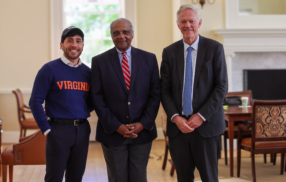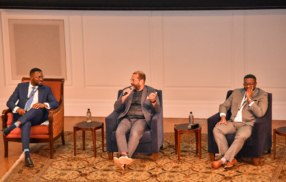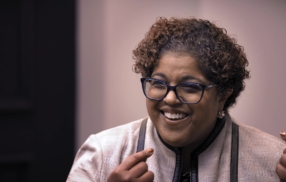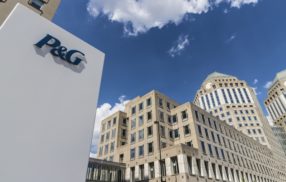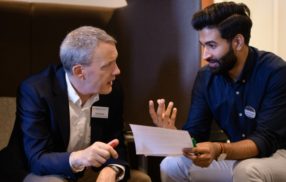
Amazon CEO of Worldwide Consumer on Cultivating an Environment of Action
By Dave Hendrick
Having joined the company more than 20 years ago, Amazon executive Jeff Wilke has played a leading role in growing the company from internet bookseller to global e-commerce leader.
Speaking at the University of Virginia Darden School of Business at a virtual Leadership Speaker Series event during GMO Week, Wilke, now Amazon CEO, Worldwide Consumer, discussed maintaining a startup mentality as a firm grows, cultivating purpose-driven leadership, and creating psychological safety for risk-taking employees.
As the company has grown, Wilke said he has sought to guard against an “inward focus” at the expense of a consumer focus. Sometimes that focus manifests itself physically — Wilke said he always tries to seek out the smallest office, modeling for the team that office size isn’t a useful concern — and other times structurally, with the executive seeking to avoid creating unnecessary layers of bureaucracy within the organization.
“Each level of management introduces friction in decision-making and resource allocation and invention,” Wilke said in a conversation with Professor Tim Laseter, with whom he has collaborated on operations issues. “We are trying to maintain a company that acts the way it does when it’s young.”
One attribute of a young, hungry company: the empowering of a broad range of people to make what Wilke described as “reversible decisions.”
While irreversible decisions require a great deal of consideration, Wilke said employees at multiple levels of a nimble organization need to be empowered to act, and to know that they won’t be punished for making a move that doesn’t lead to success. Good organizations study and learn from the missteps, but don’t begrudge the decision-maker, he said.
“If you are good at being tough on the failures but empathetic on the people, people are willing to take more risks,” said Wilke, who recently announced plans to retire in 2021. “If people take real risks and they fail, you don’t want to punish them, you want to celebrate that they can keep us from making the same mistake again.”
Companies that don’t continue to experiment eventually are “boxed into a corner” and find themselves needing to “throw a Hail Mary” to try to save the company, Wilke said. Conversely, the company with an appetite for experiment places bets along the way.
When working toward new initiatives, Wilke said the company likes to start with the desired future state in the form of a draft press release announcing the benefits of a product or initiative to the consumer, and then working backwards to make it happen.
In addition to keeping focus on the desired outcome and benefit for consumers, the working backwards model is also an effective way to ensure inclusion of ideas, Wilke said, as working toward a shared written document often combats a model where the loudest voice in the room is the one whose ideas carry the day.
Both Amazon Smile and Prime Now were examples of working backwards from a press release, Wilke said.
The Amazon executive encouraged Darden students build a playbook, or “mental model,” that would help them lead and respond to situations as their careers unfolded, citing the skills he picked up in his first post-MBA job working on the floor of an AlliedSignal factory as a meaningful experience that informed future decisions.
“You are going to need to learn to lead beyond line of sight to achieve a purpose that is bold,” Wilke said, who distilled his personal keys to leadership as competence, courage and communication.
As he plans for a future beyond Amazon, Wilke said he intended to devote part of the next stage of his career to cofounding a manufacturing company that aims to rejuvenate American factories and help rebuild domestic supply chains. He said his successor at Amazon was ready to take the reins, and it was “just time” step aside.
“My role is an operating role, and when doing operations you have to be 100 percent in it or you have to step away,” said Wilke. “I don’t want to create a position where I am demonstrating a different type of leadership than the one I want the team to exercise.”
The University of Virginia Darden School of Business prepares responsible global leaders through unparalleled transformational learning experiences. Darden’s graduate degree programs (MBA, MSBA and Ph.D.) and Executive Education & Lifelong Learning programs offered by the Darden School Foundation set the stage for a lifetime of career advancement and impact. Darden’s top-ranked faculty, renowned for teaching excellence, inspires and shapes modern business leadership worldwide through research, thought leadership and business publishing. Darden has Grounds in Charlottesville, Virginia, and the Washington, D.C., area and a global community that includes 18,000 alumni in 90 countries. Darden was established in 1955 at the University of Virginia, a top public university founded by Thomas Jefferson in 1819 in Charlottesville, Virginia.
Press Contact
Molly Mitchell
Senior Associate Director, Editorial and Media Relations
Darden School of Business
University of Virginia
MitchellM@darden.virginia.edu


